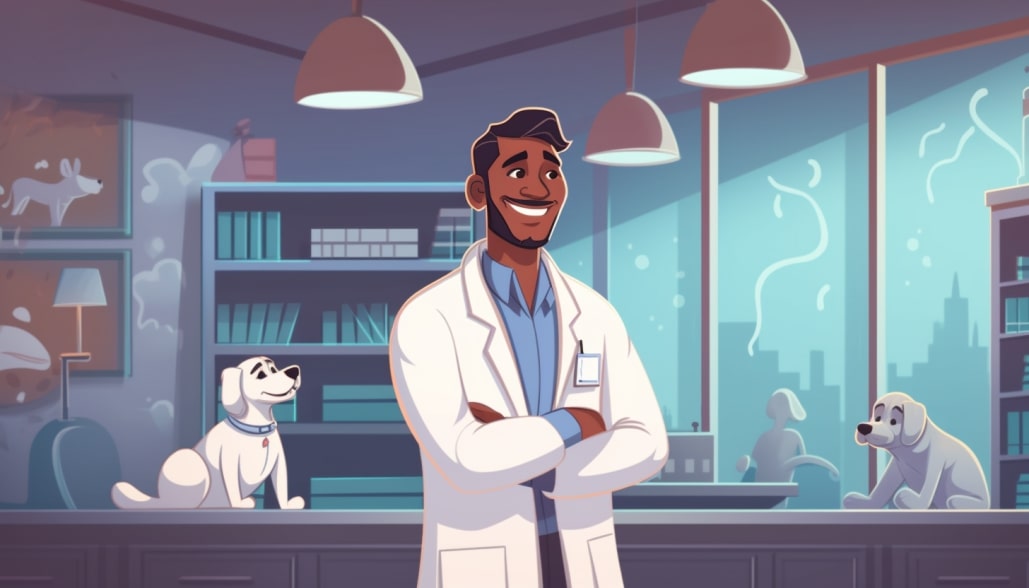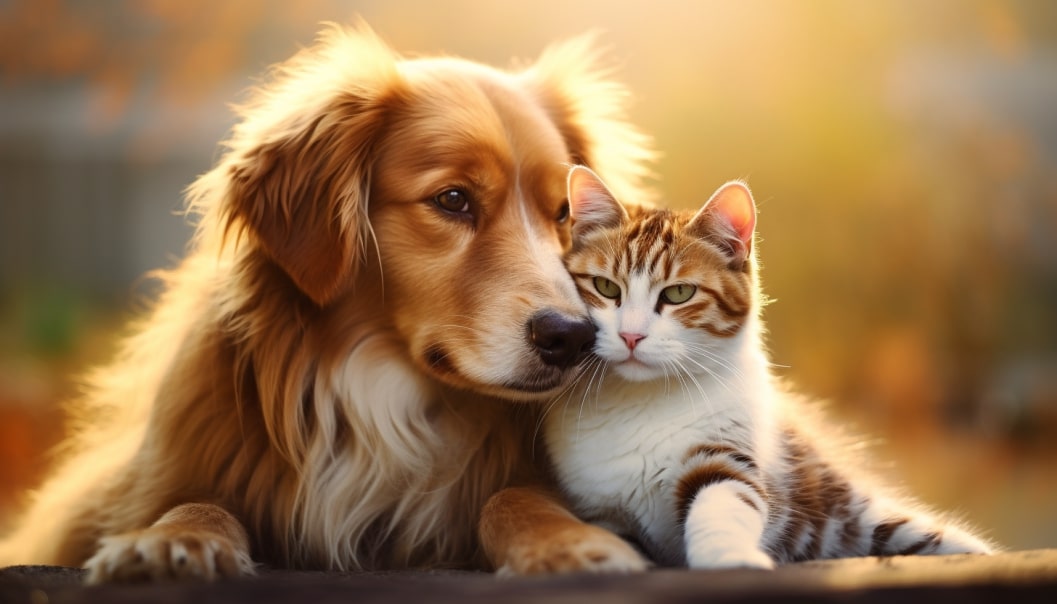
Top 5 Pet Oncology Services in Vancouver: Your Guide to Compassionate Care
When our furry friends are diagnosed with cancer, it can be a heart-wrenching experience. As pet parents, we want to provide the best care possible to ensure they live a comfortable and happy life. This guide will help you navigate the top pet oncology services in Vancouver, providing you with the information you need to make an informed decision about your pet’s cancer treatment.
Introduction
Understanding Pet Oncology
Pet oncology is a specialized field of veterinary medicine focused on diagnosing and treating cancer in pets. Just like in humans, pets can develop various types of cancer, and the treatment options are often similar, including surgery, radiation therapy, chemotherapy, and immunotherapy.
According to the Canadian Veterinary Medical Association, cancer is a leading cause of death in pets, especially as they age. However, advancements in veterinary oncology have significantly improved the prognosis and quality of life for many pets diagnosed with cancer.
Understanding the basics of pet oncology can help you better comprehend your pet’s condition and the treatment options available. It’s important to remember that each pet’s situation is unique, and treatment plans are tailored to their specific needs and overall health status.
The Importance of Choosing the Right Oncology Service
Choosing the right oncology service for your pet is crucial. The right team can make a significant difference in your pet’s treatment experience and outcome. When evaluating different services, consider factors such as the types of treatments offered, the expertise of the staff, the facility’s equipment and technology, and the overall atmosphere and approach to care.
Remember, it’s not just about choosing the most advanced or expensive option. It’s about finding a service that provides compassionate, comprehensive care and supports you and your pet throughout the cancer journey.

Unpacking Pet Oncology Services
Common Types of Pet Cancer Treatments
There are several types of pet cancer treatments, and the best approach depends on the type and stage of cancer, your pet’s overall health, and your preferences and goals for treatment. Here are the most common types of pet cancer treatments:
- Surgery: This is often the first-line treatment for many types of cancer. The goal is to remove the tumor and any affected surrounding tissue. In some cases, surgery may be combined with other treatments.
- Chemotherapy: This involves the use of drugs to kill cancer cells. Chemotherapy can be used to treat a wide range of cancers and is often used in conjunction with surgery or radiation therapy.
- Radiation Therapy: This uses high-energy rays to kill cancer cells. It can be used to treat localized tumors and can also help control symptoms in advanced cases.
- Immunotherapy: This is a newer field of cancer treatment that uses the body’s immune system to fight cancer. It’s currently used for certain types of cancer and is an area of active research.
Understanding these treatments can help you have informed discussions with your vet about the best options for your pet.
Key Takeaways
- Pet cancer treatments vary based on the type and stage of cancer, the pet’s overall health, and the owner’s preferences, with common methods including surgery, chemotherapy, radiation therapy, and the emerging field of immunotherapy.
- Surgery is often the first-line treatment aiming to remove the tumor and affected tissue, while chemotherapy and radiation therapy use drugs and high-energy rays respectively to kill cancer cells, often in conjunction with surgery.
- Immunotherapy, a newer approach, leverages the body’s immune system to combat cancer and is currently used for specific types of cancer, making it an active area of research.
What to Expect During Your Pet’s Treatment Journey
The journey through pet cancer treatment can be a roller coaster of emotions. It’s important to remember that every pet’s cancer journey is unique, and there’s no one-size-fits-all approach to treatment.
Your pet’s treatment plan will depend on the type and stage of cancer, their overall health, and your treatment goals. Treatment can range from a single surgery to a combination of treatments over several weeks or months.
Throughout the treatment process, your pet will have regular check-ups to monitor their progress and adjust the treatment plan as needed. These visits are also an opportunity for you to ask questions and discuss any concerns you may have.
It’s normal to feel overwhelmed during this time. Don’t hesitate to seek support from your vet, local pet cancer support groups, or online communities. Remember, you’re not alone in this journey, and there are resources available to help you and your pet.
Spotlight on Vancouver’s Top 5 Pet Oncology Centers
Navigating the world of pet oncology can be daunting, but Vancouver is home to several top-notch pet oncology centers. These facilities offer a range of services to help pets battling cancer. Here’s a closer look at five of them:
BBVSH Veterinary Oncology Center
The BBVSH Veterinary Oncology Center is a leading provider of pet oncology services in the Greater Vancouver area. They offer a comprehensive range of treatments, including immunotherapy, chemotherapy, and advanced cancer treatments. Their team of veterinary oncologists works closely with pet parents to develop personalized treatment plans, ensuring each pet receives the best possible care.
Canada West Veterinary Specialists
Canada West Veterinary Specialists is another top choice for pet oncology services in Vancouver. They offer a wide range of diagnostic and treatment options, including surgery, chemotherapy, and immunotherapy. Their team of specialists is committed to providing compassionate care and supporting pet parents throughout the treatment process.
Hemlock Animal Hospital
Hemlock Animal Hospital is a local veterinary clinic that offers care for pets battling cancer. Their team understands the emotional toll a cancer diagnosis can take and strives to provide a supportive and caring environment for pets and their families. They offer a range of services, from diagnosis to treatment, to help pets live comfortable and happy lives.
Newport Village Animal Hospital
Newport Village Animal Hospital in Port Moody, BC, offers medical oncology services for pets. Their team of veterinary professionals is dedicated to providing the highest standard of care for pets with cancer. They work closely with pet parents to understand their concerns and goals and develop a treatment plan that best meets their pet’s needs.
Salmon Creek Veterinary Clinic
Salmon Creek Veterinary Clinic offers a range of services, including cancer treatment, allergy care, and weight management. Their team is committed to providing compassionate care and helping pets live healthier, happier lives. They understand that every pet is unique and tailor their approach to meet each pet’s individual needs.
These are just a few of the pet oncology services available in Vancouver. It’s important to do your research and choose a facility that meets your pet’s specific needs. Remember, the best choice for your pet is one where they will receive compassionate, comprehensive care.
Preparing for Your Pet’s Oncology Treatment
Questions to Ask Your Vet
When preparing for your pet’s oncology treatment, it’s important to have a clear understanding of what to expect. Here are some questions you might want to ask your vet:
- What type of cancer does my pet have, and what is the prognosis?
- What treatment options are available, and what are the potential benefits and risks of each?
- What will the treatment process look like, and how will it impact my pet’s quality of life?
- What are the potential side effects of treatment, and how can they be managed?
- What signs of improvement or worsening should I watch for?
Having these discussions with your vet can help you make informed decisions about your pet’s treatment and feel more prepared for the journey ahead.
Supporting Your Pet During Treatment
Supporting your pet during their cancer treatment is crucial. This can involve managing their symptoms, ensuring they’re comfortable, and providing emotional support. Here are some tips:
- Follow your vet’s instructions for medication and care.
- Monitor your pet’s behavior and symptoms and report any changes to your vet.
- Provide a comfortable and quiet space for your pet to rest.
- Maintain a routine to help your pet feel secure.
- Spend quality time with your pet and provide plenty of love and reassurance.
Remember, your love and support can make a big difference in your pet’s cancer journey.
Key Takeaways
- Preparing for your pet’s oncology treatment involves understanding the type of cancer, prognosis, treatment options, potential benefits and risks, the treatment process, and potential side effects, which can be achieved through open discussions with your vet.
- Monitoring your pet’s behavior and symptoms, following the vet’s instructions for medication and care, and understanding signs of improvement or worsening are critical aspects of supporting your pet during their treatment.
- Providing emotional support, maintaining a routine, creating a comfortable and quiet space for rest, and spending quality time with your pet can significantly enhance their comfort and security during their cancer journey.
Beyond Treatment: Ensuring Your Pet’s Quality of Life
Cancer treatment is just one part of your pet’s journey. Ensuring a good quality of life during and after treatment is equally important. Here’s how you can help your pet live a comfortable, happy life, even while battling cancer.
Post-Treatment Care for Your Pet
After treatment, your pet will need time to recover and adjust. Here are some tips for post-treatment care:
- Monitor your pet’s health: Keep an eye on your pet’s appetite, energy levels, and overall behavior. Any changes could be a sign that your pet is experiencing side effects or that the cancer is progressing.
- Manage pain and discomfort: Your vet can provide medications to help manage any pain or discomfort your pet may be experiencing.
- Maintain a balanced diet: Good nutrition is crucial for your pet’s recovery. Your vet can recommend a diet plan that meets your pet’s nutritional needs.
- Provide plenty of rest: Your pet will need plenty of rest to recover from treatment. Make sure they have a quiet, comfortable place to rest and sleep.
- Keep up with follow-up appointments: Regular check-ups allow your vet to monitor your pet’s recovery and adjust the treatment plan as needed.
Resources for Pet Owners
Dealing with a pet’s cancer diagnosis can be emotionally draining. It’s important to take care of yourself, too. Here are some resources that can help:
- Support groups: Connecting with other pet owners who are going through the same experience can provide emotional support and practical advice.
- Counseling services: Some veterinary clinics offer counseling services for pet owners dealing with a pet’s serious illness.
- Online resources: Websites like the Canadian Veterinary Medical Association provide a wealth of information on pet health, including cancer.



Your Pet’s Health Journey: A Compassionate Approach
Cancer is a challenging journey, but with the right care and support, many pets can continue to live happy, fulfilling lives. Remember, you’re not alone in this journey. Reach out to your vet, connect with support groups, and make use of the resources available to you. Your love and dedication can make a world of difference in your pet’s cancer journey.
Frequently Asked Questions
- What are the side effects of pet oncology treatments? Side effects can vary depending on the type of treatment and your pet’s overall health. Common side effects include fatigue, loss of appetite, and gastrointestinal issues. Your vet can provide more information based on your pet’s specific situation.
- How long does a typical treatment process take? The length of treatment can vary widely depending on the type and stage of cancer, the treatment plan, and your pet’s response to treatment. Your vet can provide a more accurate timeline based on your pet’s specific situation.
- How can I support my pet during their treatment? Providing a comfortable environment, following your vet’s instructions for care, monitoring your pet’s health, and providing plenty of love and reassurance can all help support your pet during their treatment.
- What are the costs associated with pet oncology services? The cost of pet oncology services can vary widely depending on the type and stage of cancer, the treatment plan, and the specific services provided by the clinic. It’s best to discuss costs with your vet or the oncology center.
- What should I do if my pet’s condition worsens during treatment? If your pet’s condition worsens during treatment, contact your vet immediately. They can assess your pet’s condition and adjust the treatment plan as needed.
Sources and References
- “Veterinary Oncology Center | Cancer Treatments for Dogs and Cats.” Boundary Bay Veterinary Specialty Hospital, 2023, bbvsh.com/services/veterinary-oncology-center/. Accessed 4 Aug. 2023.
- “Oncology – Canada West Veterinary Specialists.” Canada West Veterinary Specialists, 14 Oct. 2022, canadawestvets.com/meet-our-team/departments/oncology/. Accessed 4 Aug. 2023.
- “Battling Canine Cancer.” Hemlockvet.com, 2023, www.hemlockvet.com/articles/default/415491-battling-canine-cancer. Accessed 4 Aug. 2023.
- “Medical Oncology | Port Moody, BC | Newport Village Animal Hospital.” Newportvets.ca, 2023, www.newportvets.ca/services/general-medicine/medical-oncology/. Accessed 4 Aug. 2023.
- “Vancouver Animal Care: Cat & Dog Allergies, Weight & Cancer Treatment.” Salmoncreekvetclinic.com, 2023, salmoncreekvetclinic.com/services/vancouver-pet-health.php. Accessed 4 Aug. 2023.

